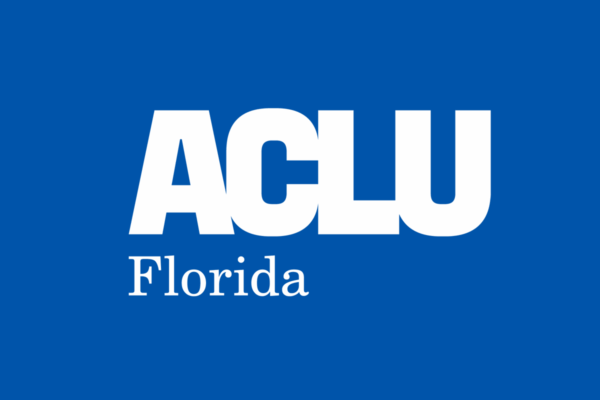TALLAHASSEE, Fla. — On Thursday, seven amicus briefs were filed with the Florida Supreme Court in the ongoing challenge against House Bill 5 (H.B. 5), a ban on abortion after 15 weeks of pregnancy. The law severely restricts abortion access and threatens to put doctors in jail for providing essential care to their patients.
The groups filing briefs include Floridians for Reproductive Freedom, LatinoJustice along with other Latino organizations, National Council of Jewish Women along with other religious organizations, current and former local and state elected officials, American College of Obstetricians and Gynecologists, a group of state constitutional law professors, and Sanctuary for Families along with a group of domestic violence and intimate partner violence organizations and advocates.
In June 2022, a group of healthcare providers filed a lawsuit challenging H.B. 5 as unconstitutional under the Florida Constitution. On January 23, 2023, the Florida Supreme Court announced it would hear the appeal over the constitutionality of the abortion ban.
These amicus brief filings come just days after the Florida Legislature introduced a new extreme abortion ban designed to go into effect if the Florida Supreme Court overturns the state’s constitutional protections for abortion. The new bill, House Bill 7 (H.B. 7), bans abortion after about six weeks — before many patients even know they are pregnant.
The briefs filed Thursday highlight the profound harm H.B. 5 has had on Floridians since it went into effect on July 1, 2022. The ban has forced countless people in need of essential abortion services to either travel long distances out of state to attempt to access care or to carry pregnancies against their will, subjecting them to the life-altering — and sometimes life-threatening — consequences of pregnancy.
One brief reported a story of a patient who was ecstatic to be pregnant, but at 18 weeks, things took a turn for the worse when she started leaking amniotic fluid. Even though this is known to be a potentially life-threatening condition, under H.B. 5’s extremely narrow exceptions and fear that they could face severe punishment for violating the law, the patient’s doctor “could not address it by terminating the pregnancy” due to uncertainty over whether they can provide abortion care. The OBGYN said, “I was forced to wait and watch my patient’s condition deteriorate rather than provide basic medical care.”
Without care, the levels of oxygen in the patient’s blood became dangerously low, signaling that her life was in danger. It was only then, when the patient was near death in the ICU, that her OBGYN was confident that her medical judgment to terminate her pregnancy and save her patient’s life would not be second-guessed.
H.B. 5 denies healthcare providers the ability to exercise their expert judgment when providing care and puts patients’ health and lives at significant risk. Making reproductive health care inaccessible in the middle of a maternal mortality crisis disproportionately harms Black women, who are nearly three times more likely than white women to die during childbirth or shortly after.
In response to these brief filings, litigating groups representing the plaintiffs in the challenge to H.B. 5 shared the below statements:
Whitney White, staff attorney, ACLU Reproductive Freedom Project
“The friend-of-the-court briefs filed last week by a wide range of experts, including medical professionals and community organizations, demonstrate the severe harm Florida's 15-week abortion ban is causing pregnant people every day it remains in effect. We hope the Supreme Court will recognize these harms and affirm every Floridans' long-standing state constitutional right to decide if and when to have a child by blocking this law.”
Daniel Tilley, legal director, ACLU of Florida
“It’s time for us to stop jumping through hoops and put an end to this blatantly unconstitutional law that takes the freedom of choice away from Floridians. This law, which has been in effect since July 1, has already had devastating consequences on the health and futures of Floridians by forcing them to continue to carry pregnancies against their will. These amicus briefs make the clear case that pregnant people should be able to determine for themselves whether and when to have a child, free from governmental interference.”
Jennifer Sandman, Senior Director, Public Policy Litigation & Law, Planned Parenthood Federation of America
“Floridians don’t want politicians interfering with their personal medical decisions. Seeing such a diverse range of groups filing briefs against Florida’s current abortion ban is yet another indication of the depth of opposition to this kind of government overreach into our private lives. What’s more, there are many years of precedent for Florida’s constitutional right to privacy protecting access to abortion. Everyone deserves the freedom to make their own decisions about their bodies and their lives — including the decision to have an abortion."
Autumn Katz, interim director of litigation at the Center for Reproductive Rights
“The evidence is clear — Florida’s 15-week ban has inflicted devastating harm on residents. Experts ranging from community advocacy groups to faith leaders from diverse backgrounds to the nation’s leading women’s health organization have documented how these impacts have jeopardized Floridians’ health and lives for almost a year now. It is up to the Florida Supreme Court to step in and protect Floridians’ rights under the state constitution and their freedom to control their own bodies.”
A copy of the amicus briefs can be found here.
Stay Informed
Sign up to be the first to hear about how to take action.
By completing this form, I agree to receive occasional emails per the terms of the ACLU’s privacy statement.
By completing this form, I agree to receive occasional emails per the terms of the ACLU’s privacy statement.

